Martial law lifted in Thailand
Updated: 2015-04-02 13:41
(Xinhua)
|
||||||||
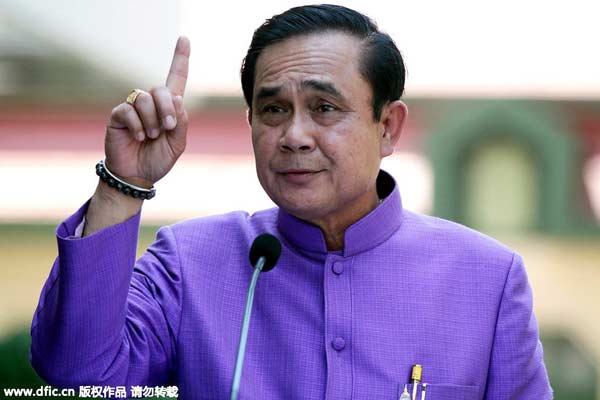 |
|
Thai Prime Minister Prayut Chan-o-cha gestures during a press conference at Government House in Bangkok, Thailand, March 31, 2015. [Photo/IC] |
BANGKOK - Martial law was lifted in Thailand on Wednesday night, effective immediately, and replaced by Article 44 of the interim constitution.
The revocation was endorsed by the king with a royal command.
According to an announcement on the revocation, currently, there is no need to continue enforcing the martial law, which was invoked by the army on May 20 and by the coup-making National Council for Peace and Order (NCPO) on May 22 last year.
Given the martial law is revoked, it is necessary for the authorities to take measures against actions which pose threats to national order, peace and stability, defy NCPO orders and involve war weapons, said another announcement issued under Article 44 of the interim constitution.
Article 44 authorizes the NCPO leader to issue any order or direct any action to be done or not to be done, irrespective of whether the order or action would produce legislative, executive or judicial effect, for the sake of national security, reform and unity. Those orders or actions, as well as their observance, shall be deemed lawful, constitutional and final.
The NCPO, which staged a coup to topple Yingluck Shinawatra's government last May, is headed by Prime Minister Prayut Chan-o-cha.
Military officers, who are designated by the NCPO to maintain security, are authorized to summon or detain suspects, as well as search public and private places and vehicles, in cases related to lese-majeste, war weapons and defiance of NCPO orders.
The officers can also ban dissemination of news which is believed to cause panic or distort the truth, in order to maintain peace and order, it said.
They may detain a suspect for up to seven days. For suspects who may have violated NCPO orders, they may be released and may also be subject to conditions, such as a ban from overseas trips or suspension of financial transactions.
People who violate or resist the authority of the officers may face imprisonment of up to one year, or a fine, or both, the announcement said.
Unauthorized political gatherings of five people or more are prohibited, it added.
Article 44 would be invoked with an aim to deploy military officers in tasks related to maintenance of national order, while police officers would still be able to exercise their authority in law enforcement with the support of military officers in detaining and investigating prospective suspects as appropriate, an earlier government statement quoted NCPO chief Prayut, as saying.
Prayut earlier defended the need to invoke Article 44, saying that he expected street rallies and political confrontation after the martial law was lifted.
As to why he chose not to invoke the emergency decree and Internal Security Act instead, the premier said that the two had failed to put an end to political turmoil as already proved by previous governments.
Prayut promised to wield his power under Article 44 " constructively," assuring the public that ordinary people had nothing to be afraid of.
- Train crash injures over 40 in Thailand
- Bereaved Chinese families to arrive in Thailand
- World's two gourmet cuisines Chengdu and Thailand exchange culinary knowhow
- China's tourism watchdog reacts to tourist deaths in Thailand
- China draws Thailand, Germany in badminton contest
- Thailand, Japan sign MoI on railway cooperation
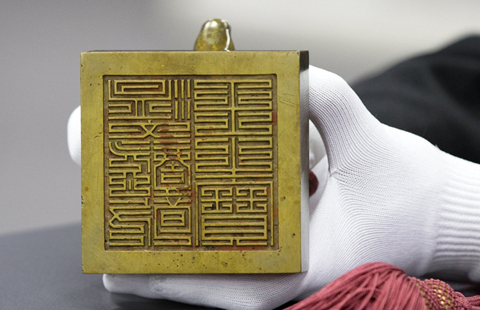
 US returns ancient Royal Seal of King Deokjong to S. Korea
US returns ancient Royal Seal of King Deokjong to S. Korea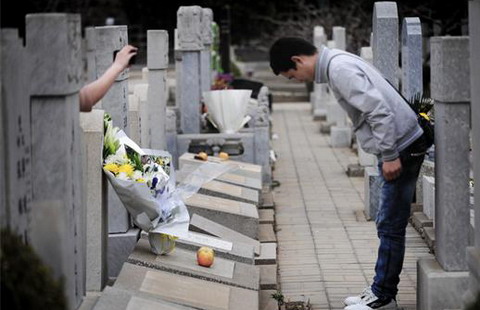
 'Tomb-sweeping services'
'Tomb-sweeping services'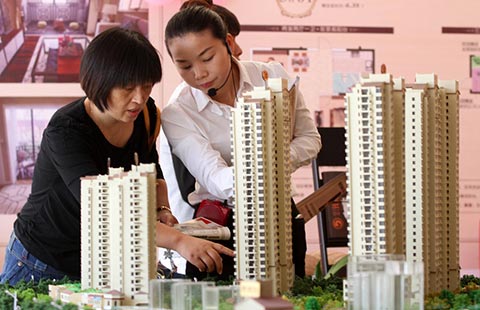
 Top 5 features of China's property market
Top 5 features of China's property market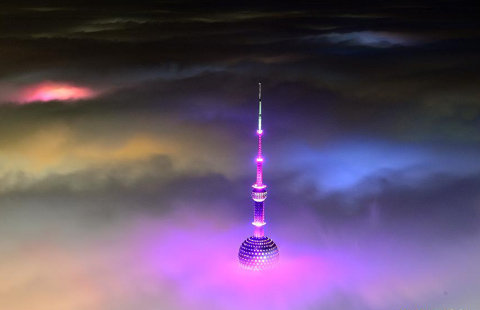
 Magnificent scene: buildings amid heavy fog in Shanghai
Magnificent scene: buildings amid heavy fog in Shanghai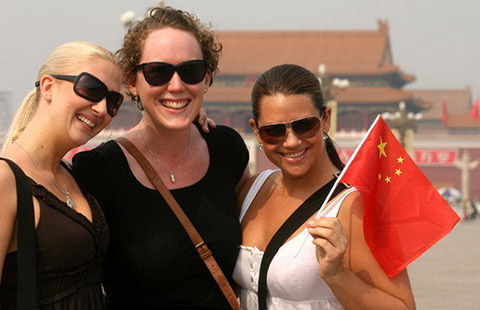
 6 cultural differences between China and the US
6 cultural differences between China and the US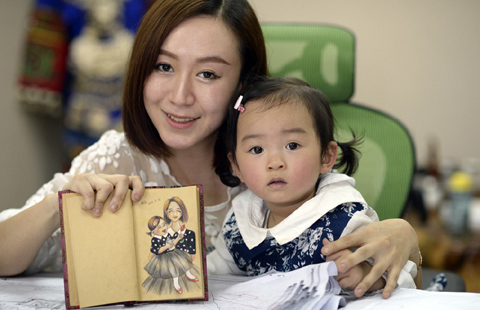
 Mother illustrates her pregnancy
Mother illustrates her pregnancy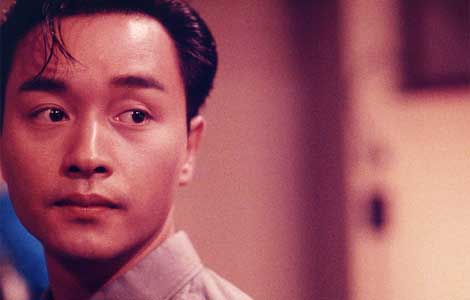
 In memory of movie star Leslie Cheung
In memory of movie star Leslie Cheung
 Top 10 best employers in China in 2015
Top 10 best employers in China in 2015
Most Viewed
Editor's Picks

|

|

|

|

|

|
Today's Top News
54 dead after Russian trawler sinks in ocean
China rips Japan's draft policy report
China can better protect nationals abroad
US 'miscalculated' on AIIB: Albright
PMI indicates that factories are expanding again
Chinese woman charged with fraud remains in US jail
46 countries apply to AIIB
Tales of a nomad
US Weekly

|

|






